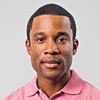A slightly different approach was taken this year at AIDSWatch 2014. Along with AIDS United and the Treatment Access Expansion Project (TAEP), the organizing team included all of the national networks of people living with HIV through the *U.S. PLHIV Caucus (United States People Living with HIV Caucus).
But it wasn’t only the deeper involvement of people living with HIV that impressed me; what amazed me was that the organizers decided to recognize an HIV criminalization survivor for outstanding leadership and service to people living with HIV.
I was nominated by the U.S. PLHIV Caucus as a recipient of AIDSWatch 2014 Positive Leadership Award, along with other well-deserving honorees, for our leadership in advocating for an end to HIV/AIDS in the United States.
AIDSWatch is an annual two-day event for congressional visits, advocacy training, and networking that prepares attendees from across the United States for visits with their representatives in Congress, providing resources, talking points, and answers to questions that Congressional staffers may have about programs related to people living with HIV and AIDS.
I greatly appreciated the opportunity to be on a panel during the orientation session and briefly share information about HIV criminalization. I spoke about how people could help with efforts advocating for HIV criminalization reform by strongly urging legislators to co-sponsor two existing bills: HR 1843, the Repeal Existing Policies that Encourage and Allow Legal HIV Discrimination Act of 2013, and Senate bill 1790, also called the REPEAL HIV Discrimination Act of 2013.
“May the work (I’ve done) speak for me!” Those were the words I quoted in a building on Capitol Hill during my acceptance of the Positive Leadership Award, my first honor ever for my contribution to framing the discourse around HIV criminalization.
When I got into this work I wondered if the gay community or HIV community would ever see me as one of their own -- or would they only recognize me as a criminal or “a condemned person” and would want to have nothing to do with me.
You only hope that you will be listened to when you tell your story, when you pour out so much of yourself everywhere you go, raising awareness and understanding of HIV criminalization through meetings, interviews, articles, written statements and countless community forums across the United States. Sometimes it seems so small, it seems like you’ve done nothing at all. You hope that people will care enough to hear what you have to say.
Needless to say, I can now see that my HIV community believes not only in the work that I do, but believes in me. May the work I’ve done speak for me.
*The U.S. PLHIV Caucus is a network of networks, organizations (including Positive Women’s Network-USA, the Sero Project, Globabl Network of People Living With HIV-North America, the International Community of Women With HIV-North America, Campaign to End AIDS) and activists openly living with HIV.








Comments
Comments